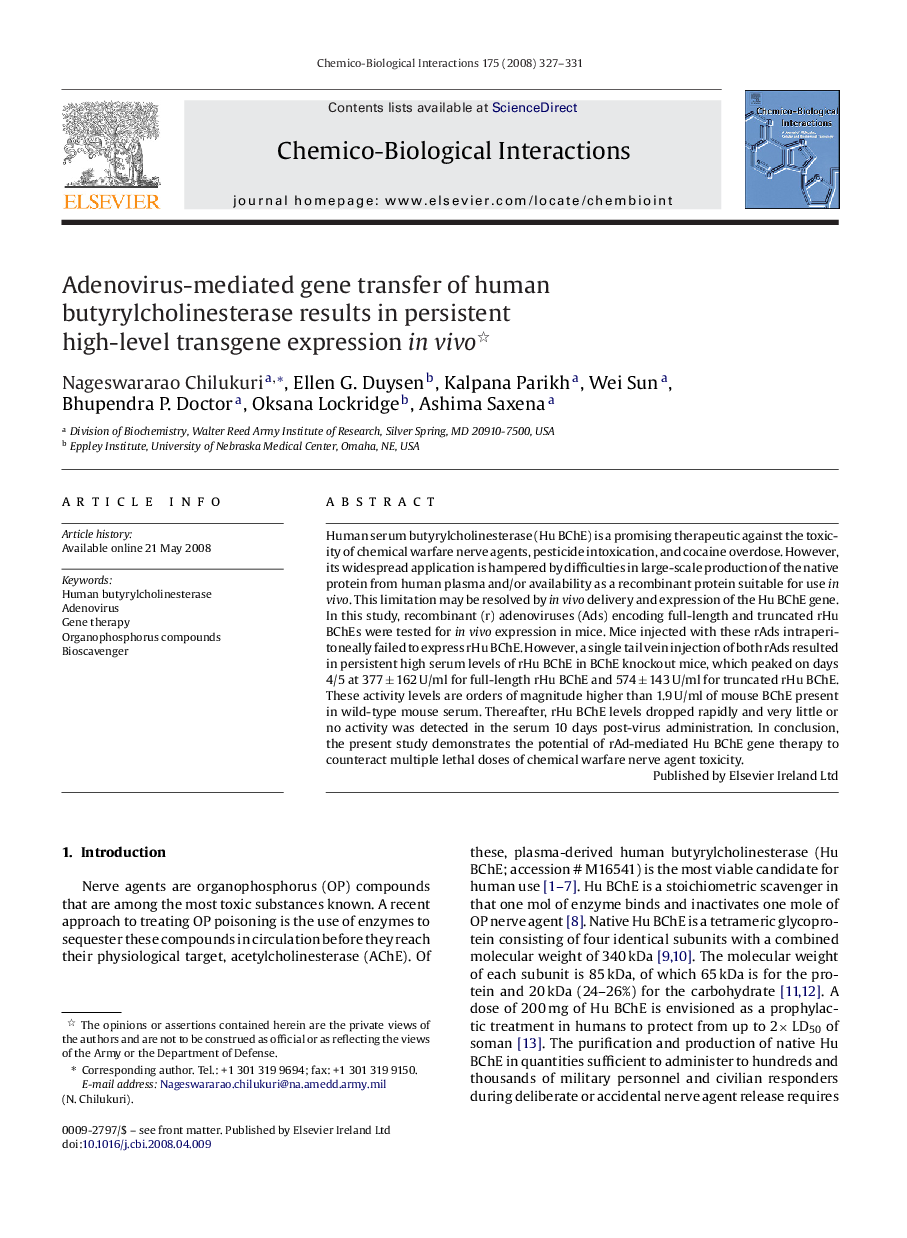| کد مقاله | کد نشریه | سال انتشار | مقاله انگلیسی | نسخه تمام متن |
|---|---|---|---|---|
| 2581608 | 1561653 | 2008 | 5 صفحه PDF | دانلود رایگان |
عنوان انگلیسی مقاله ISI
Adenovirus-mediated gene transfer of human butyrylcholinesterase results in persistent high-level transgene expression in vivo
دانلود مقاله + سفارش ترجمه
دانلود مقاله ISI انگلیسی
رایگان برای ایرانیان
کلمات کلیدی
موضوعات مرتبط
علوم زیستی و بیوفناوری
علوم محیط زیست
بهداشت، سم شناسی و جهش زایی
پیش نمایش صفحه اول مقاله

چکیده انگلیسی
Human serum butyrylcholinesterase (Hu BChE) is a promising therapeutic against the toxicity of chemical warfare nerve agents, pesticide intoxication, and cocaine overdose. However, its widespread application is hampered by difficulties in large-scale production of the native protein from human plasma and/or availability as a recombinant protein suitable for use in vivo. This limitation may be resolved by in vivo delivery and expression of the Hu BChE gene. In this study, recombinant (r) adenoviruses (Ads) encoding full-length and truncated rHu BChEs were tested for in vivo expression in mice. Mice injected with these rAds intraperitoneally failed to express rHu BChE. However, a single tail vein injection of both rAds resulted in persistent high serum levels of rHu BChE in BChE knockout mice, which peaked on days 4/5 at 377 ± 162 U/ml for full-length rHu BChE and 574 ± 143 U/ml for truncated rHu BChE. These activity levels are orders of magnitude higher than 1.9 U/ml of mouse BChE present in wild-type mouse serum. Thereafter, rHu BChE levels dropped rapidly and very little or no activity was detected in the serum 10 days post-virus administration. In conclusion, the present study demonstrates the potential of rAd-mediated Hu BChE gene therapy to counteract multiple lethal doses of chemical warfare nerve agent toxicity.
ناشر
Database: Elsevier - ScienceDirect (ساینس دایرکت)
Journal: Chemico-Biological Interactions - Volume 175, Issues 1â3, 25 September 2008, Pages 327-331
Journal: Chemico-Biological Interactions - Volume 175, Issues 1â3, 25 September 2008, Pages 327-331
نویسندگان
Nageswararao Chilukuri, Ellen G. Duysen, Kalpana Parikh, Wei Sun, Bhupendra P. Doctor, Oksana Lockridge, Ashima Saxena,